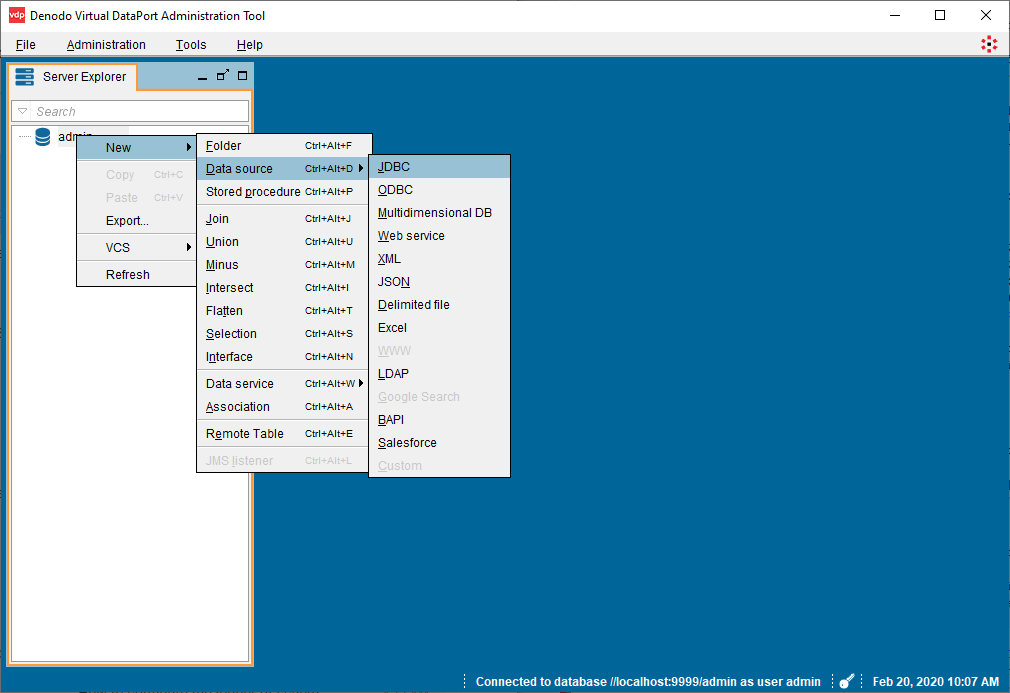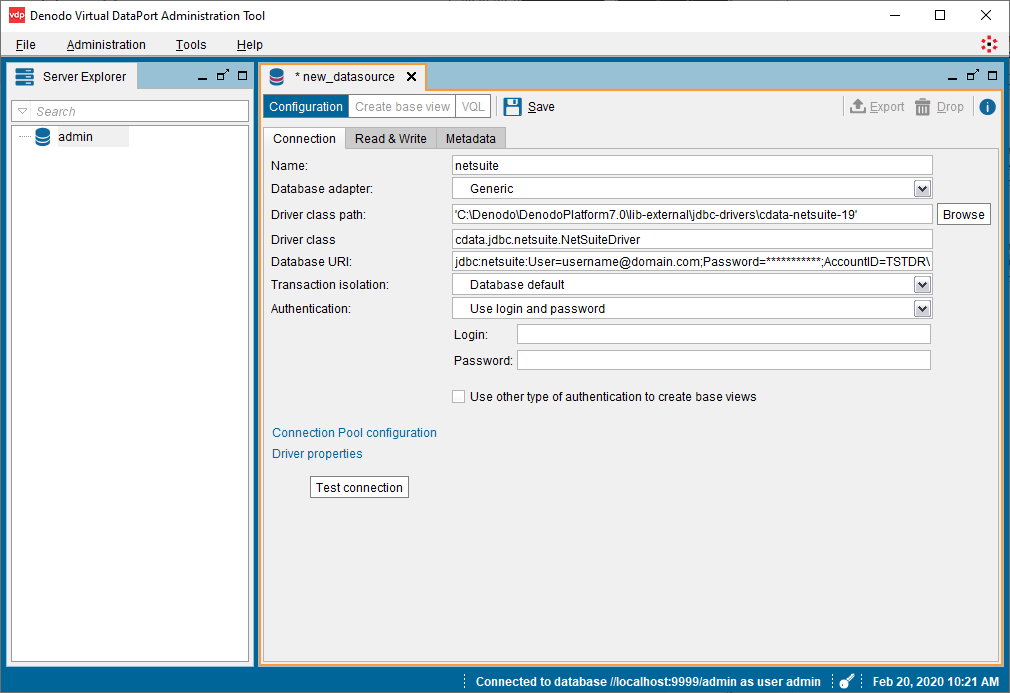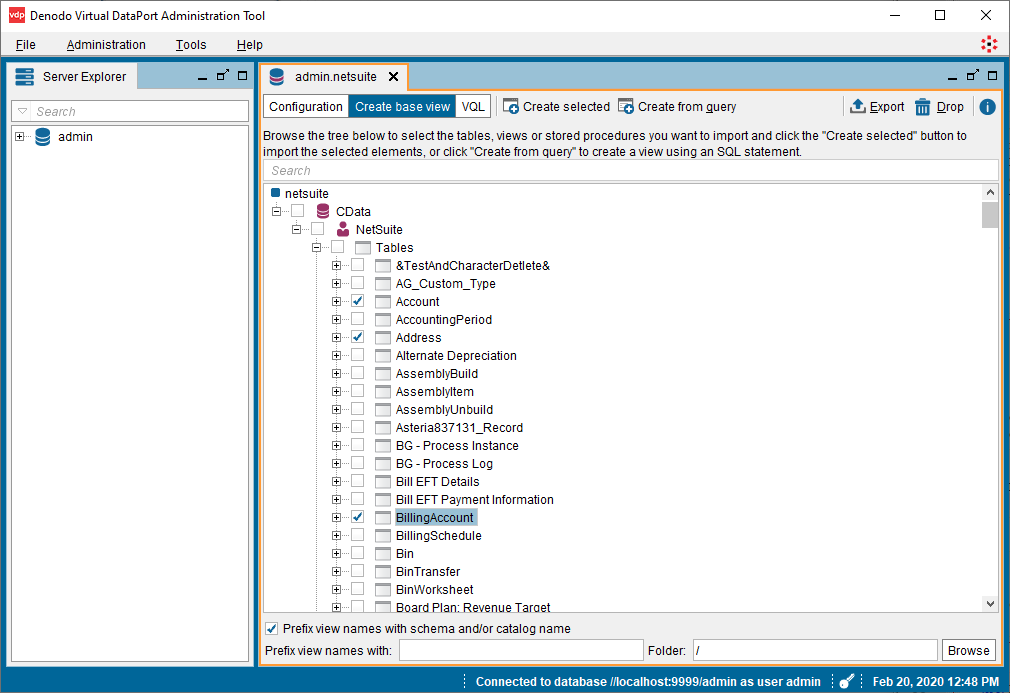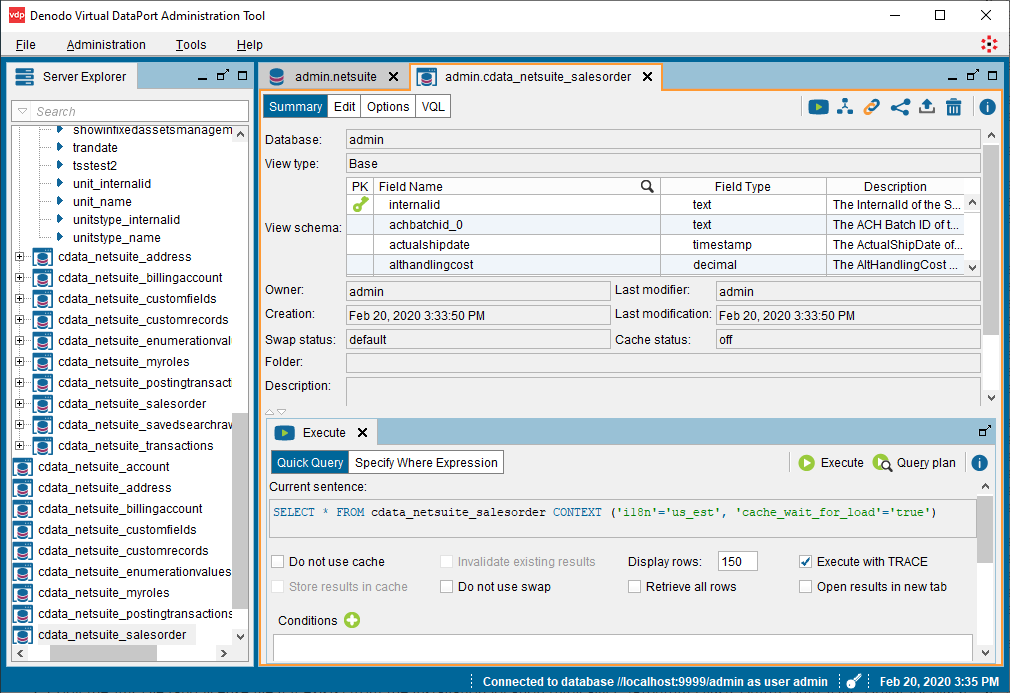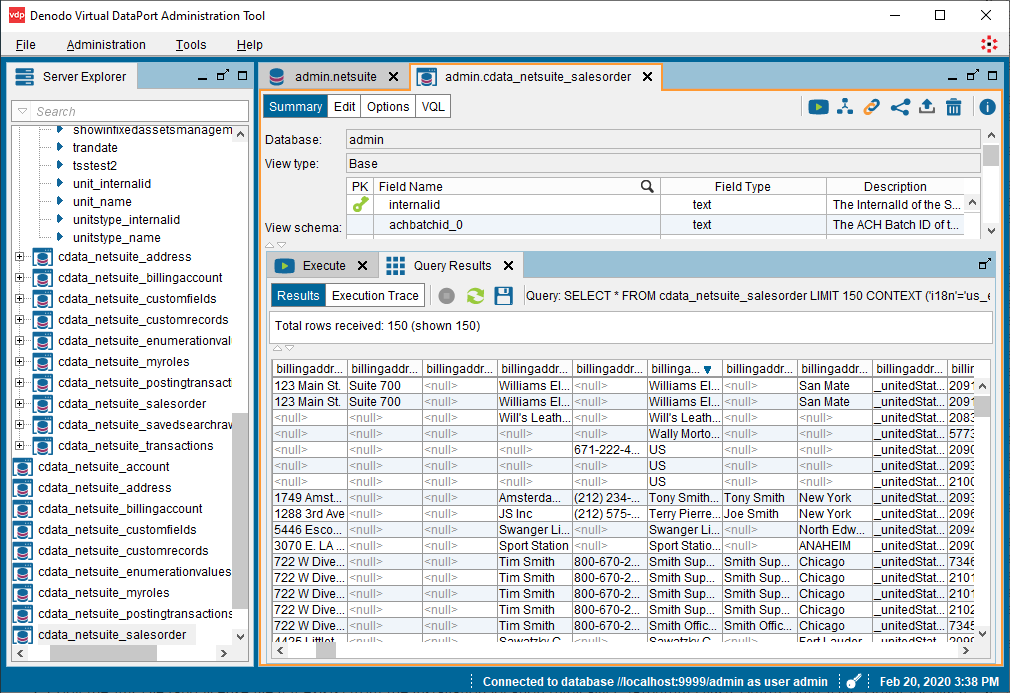Discover how a bimodal integration strategy can address the major data management challenges facing your organization today.
Get the Report →Connect to FTP Data in the Denodo Platform
Use CData driver technologies to create a virtual data source for FTP data in the Denodo Virtual DataPort Administrator.
Denodo Platform is a data virtualization product providing a single point of contact for enterprise database data. When paired with the CData JDBC Driver for FTP, Denodo users can work with live FTP data alongside other enterprise data sources. This article walks through creating a virtual data source for FTP in the Denodo Virtual DataPort Administrator.
With built-in optimized data processing, the CData JDBC Driver offers unmatched performance for interacting with live FTP data. When you issue complex SQL queries to FTP, the driver pushes supported SQL operations, like filters and aggregations, directly to FTP and utilizes the embedded SQL engine to process unsupported operations client-side (often SQL functions and JOIN operations). Its built-in dynamic metadata querying allows you to work with and analyze FTP data using native data types.
Create the FTP Virtual Port
To connect to live FTP data from Denodo, you need to copy the JDBC Driver JAR file to the external library directory for Denodo and create a new JDBC Data Source from the Virtual DataPort Administrator tool.
- Download the CData JDBC Driver for FTP installer, unzip the package, and run the JAR file to install the driver.
- Copy the JAR File (and license file if it exists) from the installation location (typically C:\Program Files\CData\CData JDBC Driver for FTP\lib\) to the Denodo external library directory (C:\Denodo\Denodo Platform\lib-external\jdbc-drivers\cdata-ftp-19).
- Open the Denodo Virtual DataPort Administrator tool and navigate to the Server Explorer tab.
- Right-click "admin" and select New -> Data source -> JDBC.
![Creating a new JDBC data source.]()
- Configure the JDBC Connection:
- Name: your choice, e.g.: ftp
- Database adapter: Generic
- Driver class path: C:\Denodo\Denodo Platform\lib-external\jdbc-drivers\cdata-ftp-19
- Driver class: cdata.jdbc.ftp.FTPDriver
Database URI: Set this to a JDBC URL using the necessary connection properties. For example,
jdbc:ftp:RemoteHost=MyFTPServer;
![Configuring the JDBC connection (NetSuite is shown).]()
Information on creating the Database URI follows:
Built-In Connection String Designer
For assistance in constructing the JDBC URL, use the connection string designer built into the FTP JDBC Driver. Either double-click the JAR file or execute the jar file from the command-line.
java -jar cdata.jdbc.ftp.jarFill in the connection properties and copy the connection string to the clipboard.
To connect to FTP or SFTP servers, specify at least RemoteHost and FileProtocol. Specify the port with RemotePort.
Set User and Password to perform Basic authentication. Set SSHAuthMode to use SSH authentication. See the Getting Started section of the data provider help documentation for more information on authenticating via SSH.
Set SSLMode and SSLServerCert to secure connections with SSL.
The data provider lists the tables based on the available folders in your FTP server. Set the following connection properties to control the relational view of the file system:
- RemotePath: Set this to the current working directory.
- TableDepth: Set this to control the depth of folders to list as views.
- FileRetrievalDepth: Set this to retrieve and list files recursively from the root table.
Stored Procedures are available to download files, upload files, and send protocol commands. See the Data Model chapter of the FTP data provider documentation for more information.
![Using the built-in connection string designer to generate a JDBC URL (Salesforce is shown.)]()
- Click the "Test connection" button to confirm the configuration and click Save.
View FTP Data in the VirtualPort Administrator Tool
After creating the data source, you can create a base view of FTP data for use in the Denodo Platform.
- Click the "Create base view" button in the newly created VirtualPort (admin.FTP).
- Expand the object tree and select the objects (tables) you wish to import.
![Selecting objects to import (NetSuite is shown).]()
- Click the "Create selected" button to create views of the FTP data.
Optional: Click "Create associations from foreign keys" to define relationships between the objects. - With the view(s) created, navigate to a table (cdata_ftp_mydirectory) in the Server Explorer and double-click the selected table.
- In the new tab, click "Execution panel" to open a query panel.
- Customize the query in the "Execute" tab or use the default:
SELECT * FROM cdata_ftp_mydirectory CONTEXT ('i18n'='us_est', 'cache_wait_for_load'='true')![Configuring the query to view the data.]()
- Click Execute to view the data.
![Viewing the data.]()
With the base view created, you can now work with live FTP data like you would any other data source in Denodo Platform, for example, querying FTP in the Denodo Data Catalog.
Download a free, 30-day trial of the CData JDBC Driver for FTP and start working with your live FTP data in Denodo Platform. Reach out to our Support Team if you have any questions.






